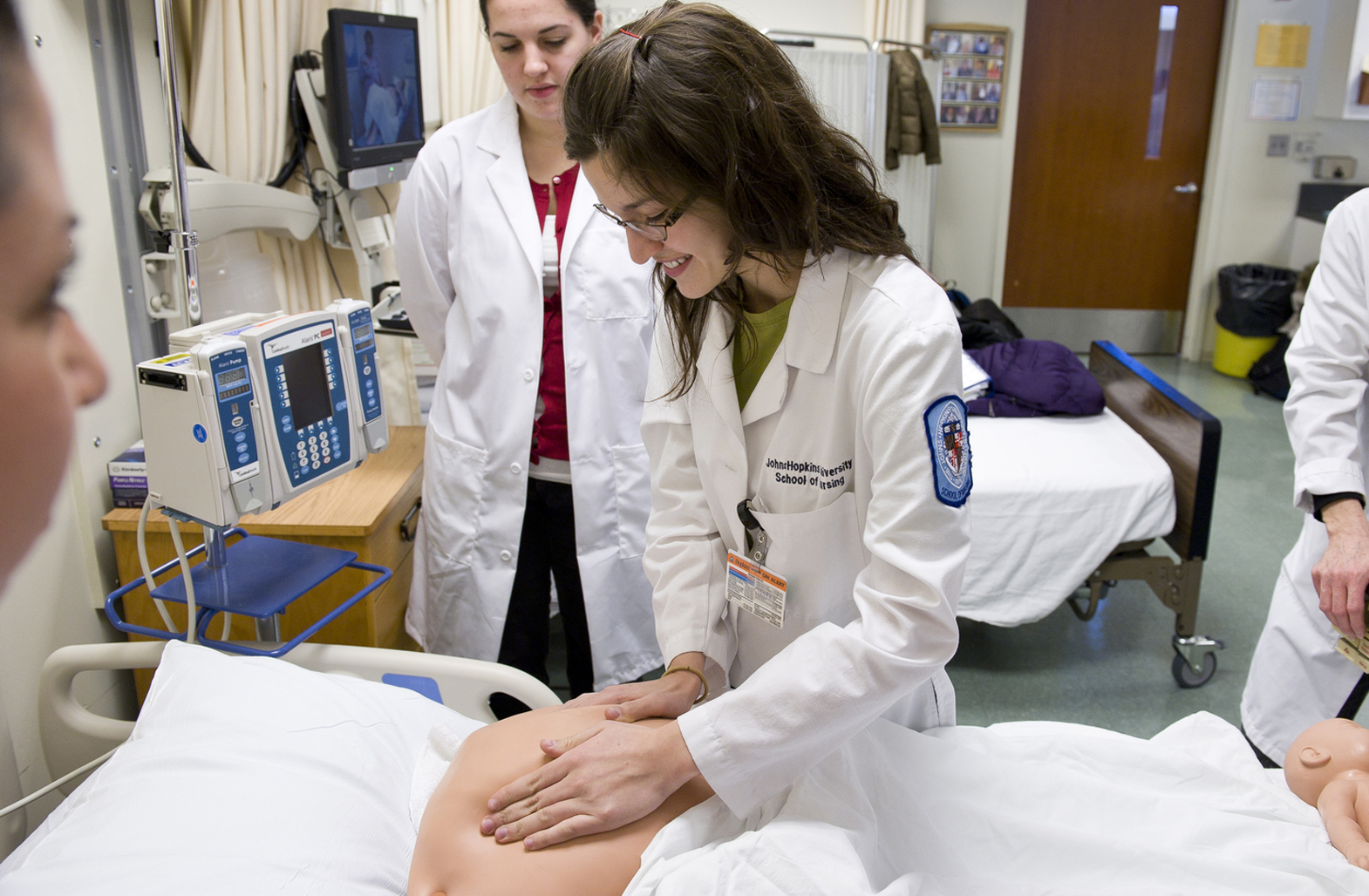For one year, four free online learning modules will offer faculty of all schools of nursing across Maryland the chance to maximize interprofessional education, or IPE, through simulations that feature nursing, medical, and pharmacy students working together to respond to challenging scenarios like a medication error, a fire in an assisted living facility, or pain management issues in a patient with a history of substance abuse.
The idea behind the project, led by the Johns Hopkins School of Nursing and Notre Dame Maryland University’s pharmacy school, is that faculty will incorporate what they learn into their curricula, creating nurses (and doctors and pharmacists) who are more prepared work collaboratively to provide safer high quality care for patients when they enter healthcare work force.
What is required to participate? Those who use the free modules with students must simply complete the module evaluations and report back so that the impact of the modules can be assessed as part of a Nurse Support Program (NSP) II grant from the state.
“The program is a multiplier, purely and simply,” says Elizabeth “Ibby” Tanner, principal investigator for the project. “For example, when we reach 15 faculty who each reach 35 or so students, then we have reached a total of 525 future nurses, and so on. You can see the impact of interprofessional training for schools that lack such opportunities.”
The module-sharing builds on the success realized through two other Hopkins Nursing-led grants to increase IPE across the state in the face of a changing healthcare environment where positive patient outcomes will become the standard against which healthcare is measured and greater cooperation between branches of medical care is critical.
A Maryland Hospital Association “Who Will Care?” grant—“Developing an Interprofessional Faculty Development Curriculum Program”—fostered creation of faculty learning modules.
Another NSP II grant from the Maryland Higher Education Commission— “The Maryland Faculty Academy in Simulation Training (MFAST)”—brought together a consortium of 10 Maryland schools of nursing to Johns Hopkins to learn high fidelity simulation and how to integrate it into their own curricula.
The goal of the latest NSP II grant—“Online Use of Interprofessional Simulation for Nursing Student Instruction and Faculty Development”—led by Tanner is to “facilitate interprofessional education by providing nursing, medical, and pharmacy faculty with the knowledge and tools necessary to incorporate these online interprofessional simulations into their curriculum.”
The four modules introduced this summer:
“Transition from hospitalization to home: Home visiting of an older adult with Type 2 diabetes to assess for glucose control and ability to manage new medications. The nurse consults with the pharmacist and physician during an interprofessional home visit to promote a successful care transition from hospital to home.”
“Decision making with relation to pain control: A patient with a history of substance abuse was hospitalized for surgery related to a chronic back injury. During interprofessional rounding the day after surgery, the patient complains of uncontrolled pain that has not responded to the analgesic being administered, and the team must decide what to do next.”
“Initial disaster response: A fire occurs in an assisted living facility. The nursing, medical and pharmacy staff working during the time of the fire must remove patients from immediate danger, triage patients by severity of injury, and provide basic care with limited supplies and no electricity until responders arrive.”
“Improving patient safety: Nurses, physicians, and pharmacists are seeing a child with a medication overdose in the emergency department after a medication error has occurred. Using the background information from a true event that leading to this medication error, the interprofessional team will work together to address how to disclosure the error and analyze system causes to prevent such errors from occurring.”
To check out the online modules, register here.
***
The Johns Hopkins School of Nursing is a leader in nursing education, research, and practice, locally and globally. The school’s academic programs are recognized for excellence in educating innovative nurse leaders who set the highest standards for patient care and safety. Top ranked in graduate programs by U.S. News & World Report, the Johns Hopkins School of Nursing provides students and faculty with interprofessional opportunities and resources unparalleled in scope, quality, and innovation. For more information, visit nursing.jhu.edu.
Media Inquiries
Contact Danielle Kress
410-955-2840 or [email protected]
